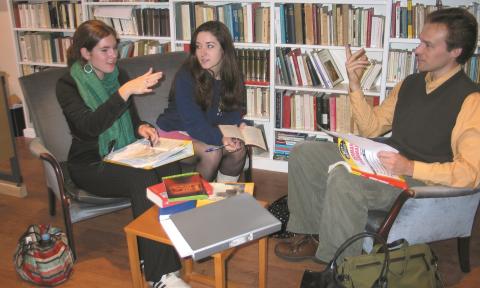Both past and present, Italy’s culture, in all its historical, literary and artistic richness, is amongst the most globally vibrant and exciting. Degree programmes in Italian at Oxford offers our students a unique opportunity to explore all that the peninsula has to offer. You will study intensively the culture of Italy in all its facets alongside an equally intense and enriching study of the Italian language. The Italian Sub-Faculty in Oxford is one of the largest departments of Italian in the English-speaking world. There are currently eight permanent members of staff, including the Agnelli-Serena Professor of Italian Studies, five Full Professors, one Senior Lecturer and one Lecturer of the Italian Language. A further Associate Professor or Professor of Italian will be appointed by 2024-25. In addition, the Sub-Faculty has a further dozen academic staff including College Lecturers, language teachers, and graduate tutors. Distinctive and indeed unique too are the unparalleled resources offered to our undergraduates and graduates by the Taylor Institute and the Bodleian Library.
Our students and our courses
There are usually around 180 students reading Italian in Oxford at any one time, nearly 20 of whom are graduate students. Undergraduate applications have shown strong growth in the last fifteen years, and Italian now admits an average of 40 undergraduate students a year, including a very successful beginners’ Italian cohort. All our undergraduate students can either combine Italian as one of two languages (together with French, German, Spanish, Portuguese, Russian) or with Linguistics, Classics, English, History, Philosophy, and range of other languages including Arabic in Joint Honours Schools of Classics and Modern Languages, English and Modern Languages, Modern History and Modern Languages, Philosophy and Modern Languages, and European and Middle Eastern Languages. Some two-thirds of our current undergraduate intake are beginners in Italian, and they receive carefully tailored instruction, just as do those entering with more advanced competencies. Language teaching is constantly reviewed and provided by an expert team of colleagues led by our Senior Language Instructor.

Undergraduate Studies

Graduate Studies

Research